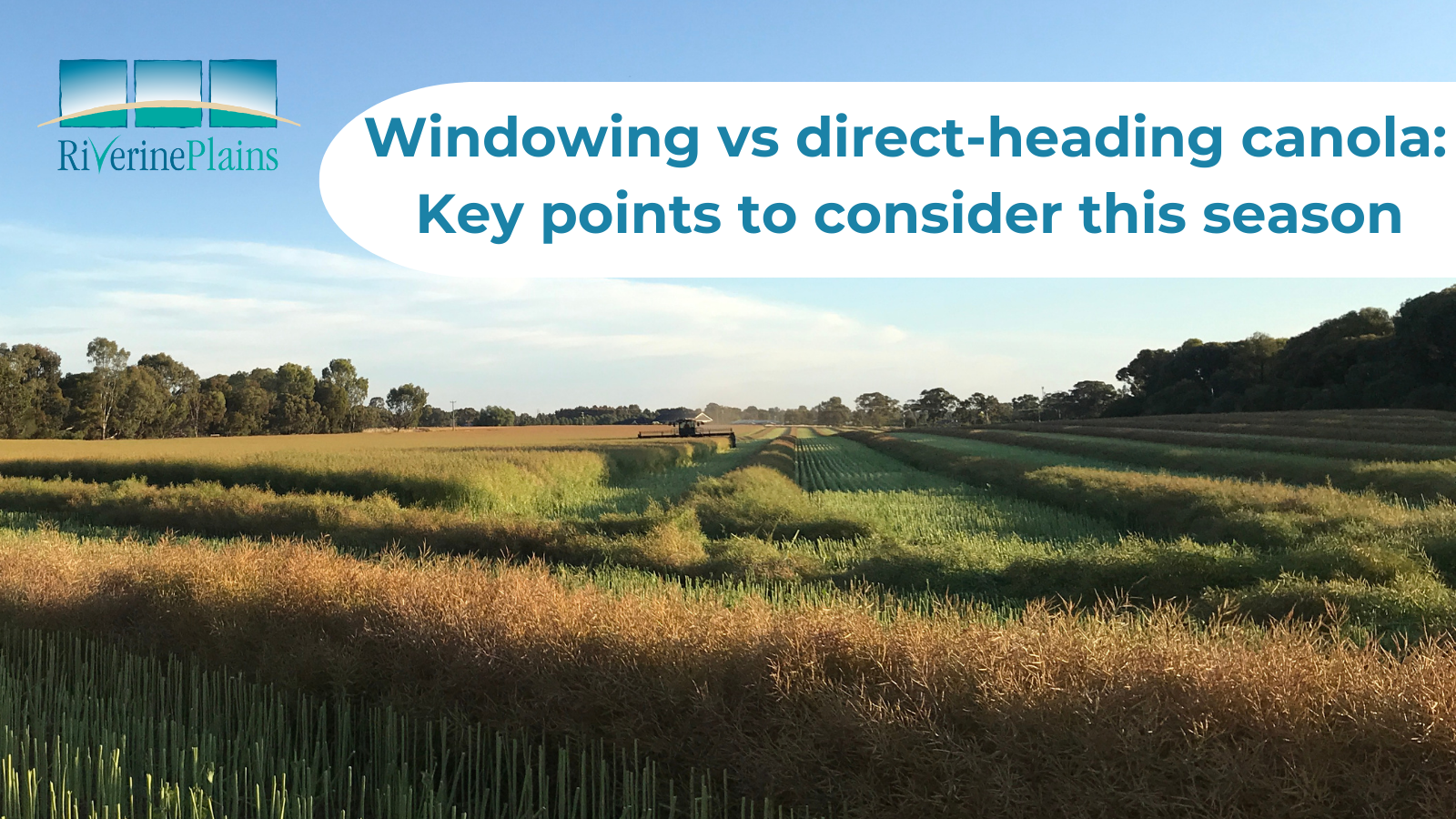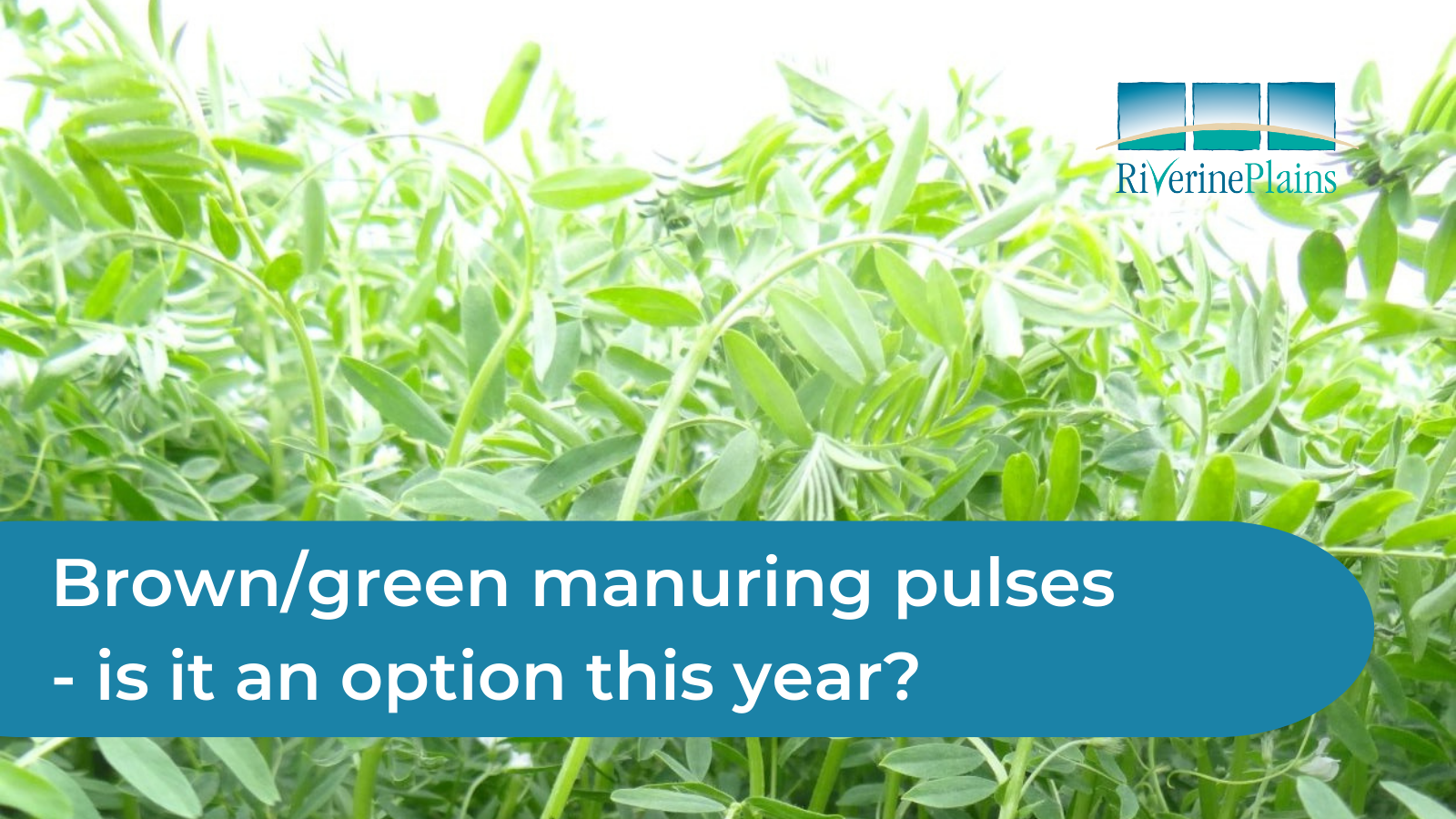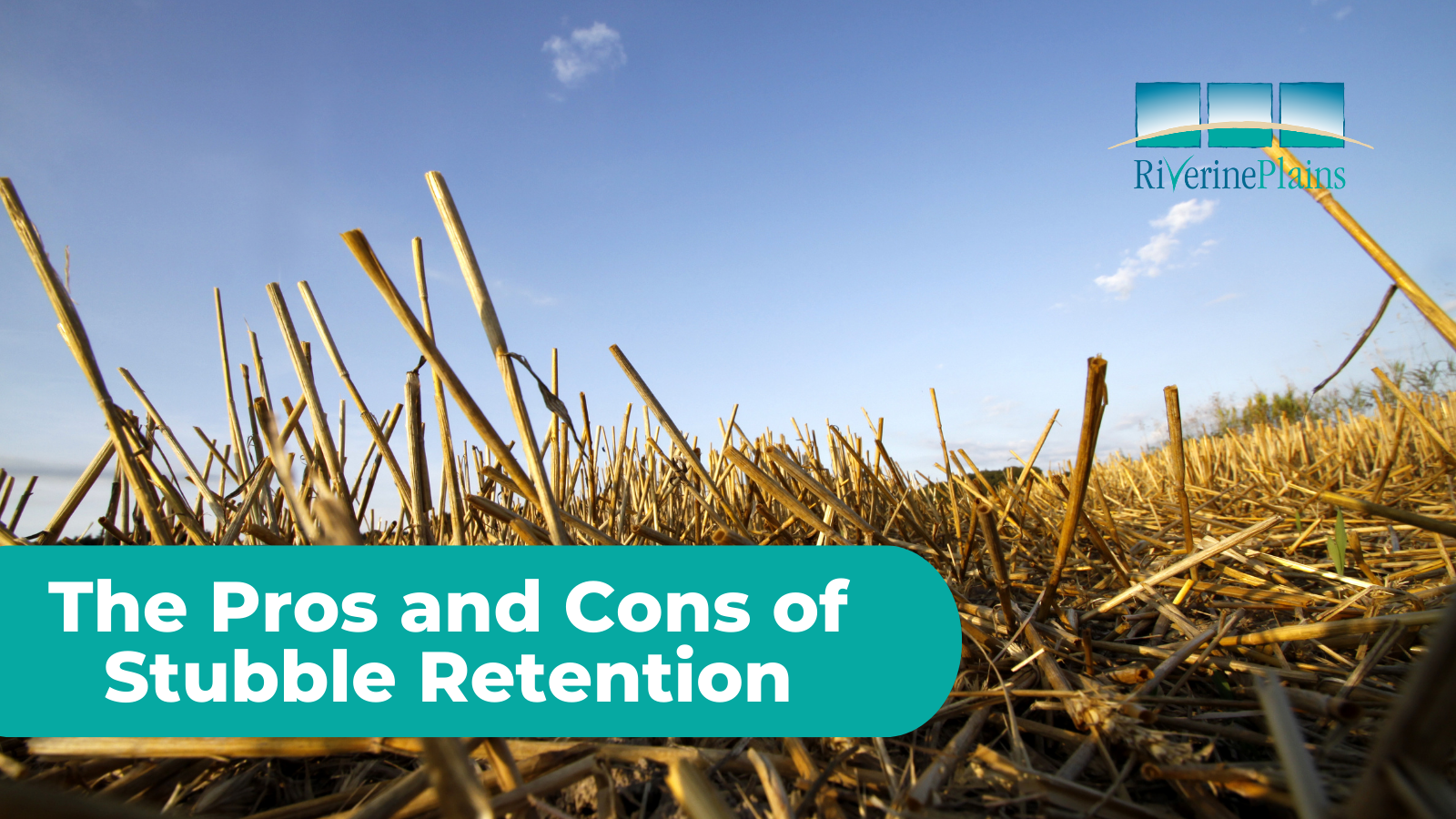Windrowing vs direct-heading canola: key points to consider this season
- Monitor canola for seed colour change (both on the main stem and branches) to determine the optimum windrowing time
- Contractor availability, trafficability & heavy, lodged crops may compromise windrowing
- Direct heading may provide an alternative to windrowing in some situations.
Riverine Plains’ farmers would usually be busy gearing up for windrowing at this time of year, however the cool and wet conditions have delayed canola maturity and caused a host of other issues.





